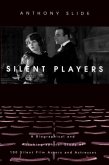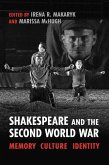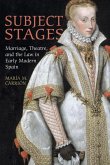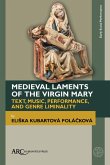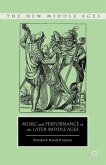Silent Medievalisms investigates the prevalence of medieval narratives and tropes during cinema's silent era and explores the ways that silent movies use the past to communicate political, national, propagandistic, and social meanings in their present moment. Groundbreaking films such as Joan the Woman (1916), Douglas Fairbanks in Robin Hood (1922), The Passion of Joan of Arc (1928), and several others provide a rare opportunity to ponder the intersection of the newest technologies with narratives that predate them by many centuries. Narrative themes and tropes are distinct from the technologies that (re)create them, yet they are imbricated within complex networks of possibility and production. Contributors consider the persistent restaging and appeal (even when problematic) of medieval tropes, illuminating the essential nature of the medieval to early cinema across geographies, methodologies, and ideologies. They examine the relationship between the old and the new, made oblique when the new would seem to eclipse the old as emergent technologies seismically shifted the ways in which audiences consumed narratives. Ultimately, Silent Medievalisms demonstrates how those technologies enabled diverse visions of the Middle Ages--historical, fantastical, political--in ways that other media did not. Contributors: Kimberly Ball, Elizabeth Coggeshall, John Haines, Kevin J. Harty, Valerie B. Johnson, Tison Pugh, Sabina Rahman, Carol L. Robinson, Robert Squillace, Alexandra Sterling-Hellenbrand, Alfred Thomas, Laura E. Wangerin, Angela Jane Weisl
Bitte wählen Sie Ihr Anliegen aus.
Rechnungen
Retourenschein anfordern
Bestellstatus
Storno


